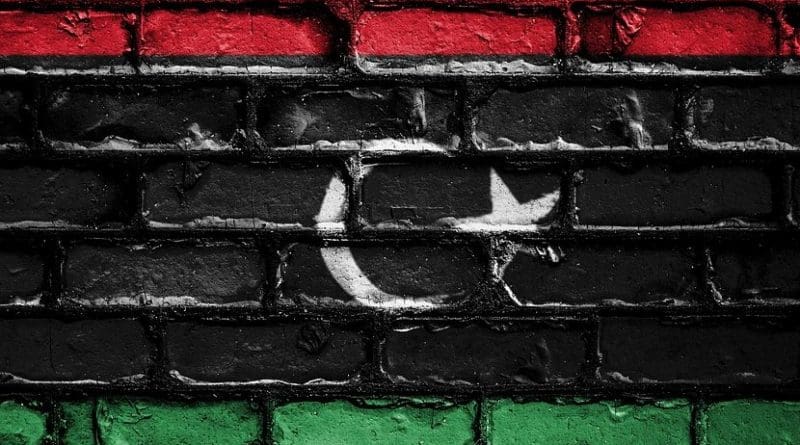Libya At Risk: Arrival Of Mercenaries Raise Fears Of Prolonged War – OpEd
A new wave of mercenaries from Sudan is fighting in Libya this month, deepening concerns that the conflict in the north African state has descended into an intractable international war that could destabilize much of the region.
The groups were fighting with the Libyan National Army (LNA) led by General Khalifa Haftar against the internationally recognised government in Tripoli. There are more than 3,000 Sudanese mercenaries now fighting in Libya, significantly more than most previous estimates.
UN said the interference of fighters from Sudan in Libya was a direct threat to the security of the war-torn country. A UN panel of experts said in a 376-page report to the security council that the presence of the Sudanese has become more marked in 2019 and may lead to further instability.
Hafter said that his forces were preparing for a “decisive battle” to take full control of the city. he started this war in April aimed at capturing Tripoli but the offensive stalled, leaving both sides dug in and shelling one another along the city’s southern reaches with increasingly sophisticated weapons.
Some of the biggest Sudanese groups based in Libya once fought in Darfur, the restive western region of Sudan, in a series of insurgencies against militia and troops sent by the repressive regime in Khartoum.
As we know Libya has been in turmoil since a civil war in 2011 toppled Muammar Gaddafi. In the chaos that followed, the country was divided, with a weak UN-supported administration in Tripoli overseeing the country’s west and a rival government in the east aligned with Hafter’s LNA, each supported by an array of militias and foreign governments.
In addition, Jordan, Turkey and the United Arab Emirates routinely and sometimes blatantly supplied weapons, with little effort to disguise the source” in violation of a UN arms embargo. But “neither side has the military capability to effectively decide the outcome to their advantage.
The Sudanese mercenary commanders said the new wave of recruits included many who had fought against the rule of Omar al-Bashir, who was deposed in April when Sudan’s military withdrew their support after months of popular protests.
The aims of the Sudanese mercenary commanders said the new wave of recruits included many who had fought against the rule of Omar al-Bashir, who was deposed in April when Sudan’s military withdrew their support after months of popular protests.so their aims to fight with Hafter.
On the other hand, most of them had been recruited in Darfur in recent months while others had travelled from there to Libya to enlist, they also want to return to Sudan to fight against the current transitional government, installed after al-Bashir’s fall. One of them said, “I know that we are mercenaries and we are not fighting with honour and dignity …. but this is temporary, we will go back home after we are done with our mission here,” also “no timetable” for leaving Libya but that any stay was temporary.
Why is Libya at risk?
Because the Mercenaries are there just to have a secure base and to get weapons and other military logistics then they will to go back to Sudan. according to that, the new influx of recruits could be a significant destabilising factor in the long term.
The Mercenaries are coming in to earn money. It could be one year, two years or more but eventually the conflict will cool off. At some point they will start to return home to Sudan. But where is the future to Libya still, they will have a war there are also claims that a large contingent of Sudanese fighters from the feared paramilitary Rapid Support Forces (RSF) were deployed to Libya on the request of Hafter.
A thousand Sudanese troops from the RSF, which has been accused of major atrocities earlier this year and in Darfur, were deployed to Libya on 25 July 2019 by Mohamed Hamdan Dagalo, a warlord turned senior official also known as Hemedti. The Sudanese mercenaries are also involved in smuggling and other activities.
Moreover, LNA support them to smuggle migrants hoping to travel to Europe across the frontier between Sudan and Libya, and the hostile desert. Sudanese troops played a crucial role in “liberating” the oilfields seized by Hafter’s forces. The claim is corroborated by previous reports from the UN panel of experts which said Sudanese mercenaries helped the LNA secure the country’s strategic “oil crescent”.
We find that Libya has no solution for it unless the Haftar forces and the LNA government give up their ambitions, and this is to refuse to build Libya.


NO.
Very confusing situation in Libya.
But you forgot to mention that the UN govt in Tripoli is using terrorists for their security. Are they plain stupid or in need of security and the UN would not provide it? The end result is that Muslim Brotherhood and other terrorist are now soldiers in UN security, and Erdogan’s (Turkey’s leader) political party are the MB.
Sputnik said that Turkey has been shipping mercenary fighters to Libya via Tunis. Fighters from El Nusra Front and Islamic State from Syria.
So that TOO is an impossible situation.
Before throwing your support into the UN govt in Libya with its terrorist/Islamist militia security — I suggest you research what I have written above more carefully.
It is an impossible situation but the worst outcome would be for the Islamic State to declare Libya its new caliphate. Do you agree?
And it looks like the UN w/Turkey would be doing just that.